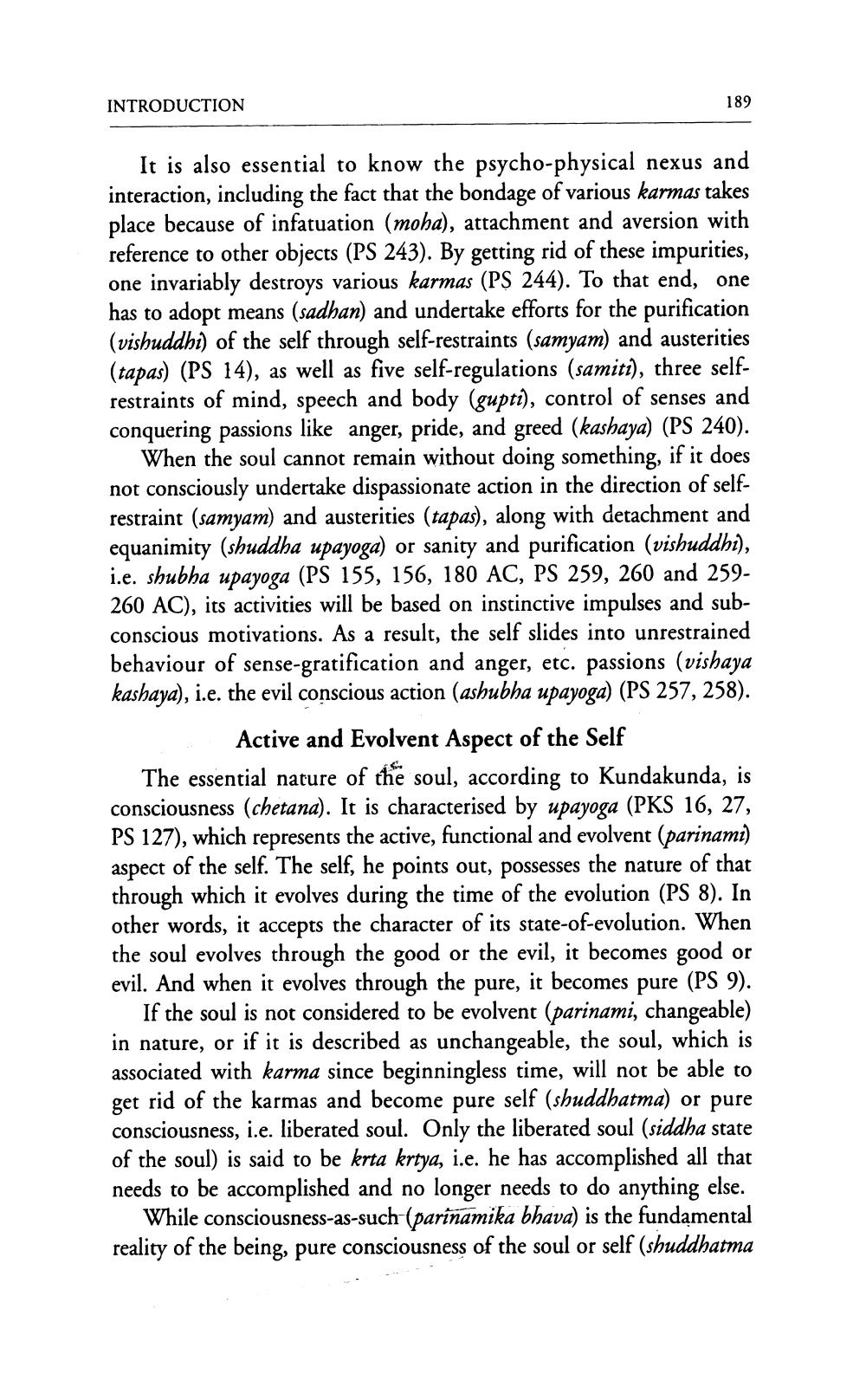________________
INTRODUCTION
189
It is also essential to know the psycho-physical nexus and interaction, including the fact that the bondage of various karmas takes place because of infatuation (moha), attachment and aversion with reference to other objects (PS 243). By getting rid of these impurities, one invariably destroys various karmas (PS 244). To that end, one has to adopt means (sadhan) and undertake efforts for the purification (vishuddhi) of the self through self-restraints (samyam) and austerities (tapas) (PS 14), as well as five self-regulations (samiti), three selfrestraints of mind, speech and body (gupti), control of senses and conquering passions like anger, pride, and greed (kashaya) (PS 240).
When the soul cannot remain without doing something, if it does not consciously undertake dispassionate action in the direction of selfrestraint (samyam) and austerities (tapas), along with detachment and equanimity (shuddha upayoga) or sanity and purification (vishuddhi), i.e. shubha upayoga (PS 155, 156, 180 AC, PS 259, 260 and 259260 AC), its activities will be based on instinctive impulses and subconscious motivations. As a result, the self slides into unrestrained behaviour of sense-gratification and anger, etc. passions (vishaya kashaya), i.e. the evil conscious action (ashubha upayoga) (PS 257, 258).
Active and Evolvent Aspect of the Self The essential nature of the soul, according to Kundakunda, is consciousness (chetana). It is characterised by upayoga (PKS 16, 27, PS 127), which represents the active, functional and evolvent (parinami) aspect of the self. The self, he points out, possesses the nature of that through which it evolves during the time of the evolution (PS 8). In other words, it accepts the character of its state-of-evolution. When the soul evolves through the good or the evil, it becomes good or evil. And when it evolves through the pure, it becomes pure (PS 9).
If the soul is not considered to be evolvent (parinami, changeable) in nature, or if it is described as unchangeable, the soul, which is associated with karma since beginningless time, will not be able to get rid of the karmas and become pure self (shuddhatma) or pure consciousness, i.e. liberated soul. Only the liberated soul (siddha state of the soul) is said to be krta krtya, i.e. he has accomplished all that needs to be accomplished and no longer needs to do anything else.
While consciousness-as-such (parinamika bhava) is the fundamental reality of the being, pure consciousness of the soul or self (shuddhatma




